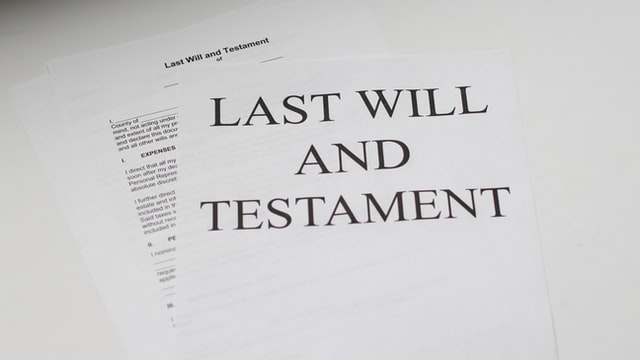That is a good question. Can your attorney be the executor of your will here in Cincinnati? The short answer is yes. However, it begs the question of why would you want your attorney to be the executor? Is it your only option? Most people appoint a relative such as a spouse, an adult child, or a sibling. But perhaps you don’t have any of those, or you do, but none are willing to accept the responsibilities that come with it. Or they might not be capable for some reason. Another option is to choose a bank or a trust company to take on that role. It’s important to note who CANNOT be an executor. You cannot appoint anyone under the age of 18 to be your executor. Or an adult with disabilities that prevent them from managing their own financial affairs. And interestingly, unlike many states that prohibit anyone with a felony conviction on their record from being an executor, Ohio is ok with that.
And while you can appoint an executor who lives outside of Ohio in some circumstances, most attorneys recommend selecting someone who lives near you for the sake of availability and convenience for that individual.
While we are on the topic of executors, I thought I’d provide some information about what is usually expected of an executor:
Obtain copies of the death certificate and file the will.
You can usually obtain copies of the death certificate from the funeral home.
The deadline for filing the will varies state by state, from 10 to 90 days.
Consider assembling a team.
Usually, this means, at minimum, an estate planning attorney to help you navigate the process. Sometimes adding a tax professional is also a good idea.
Create an inventory of assets.
With luck, the deceased was organized and had all the needed records at hand. That would include documents like bank and brokerage accounts, insurance policies, tax returns, and other documents.
Protect personal property.
If the estate includes a home, you’ll be responsible for maintaining the property and paying the mortgage, taxes, and insurance until the house is sold.
Set up a separate bank account.
Throughout the process, you may need to pay bills and make deposits on behalf of the estate. You should set that account up in the name of the decedent’s estate and obtain a separate tax identification number for the estate.
Pay the decedent’s debts.
This might also include filing state and federal tax returns.
Communicate regularly with the beneficiaries.
If you are not the only beneficiary, make sure to let the others know what is happening throughout the process.
Distribute the assets.
This is the final step in the process and can only be completed after all debts are paid. It may require court approval first. Again, it is a good idea to have an estate planning attorney help with all of this.
I hope this has been helpful. As mentioned, the short answer to the question, “Can my attorney be the executor of my will in Cincinnati?” is yes. But to understand more about selecting the executor of your will, I thought it would be useful to understand what you’re asking that individual (or business) to do if you die. If you would like help with your will or estate plan, I’d like to be of service to you. Please call me at 513-399-7526 or visit my website, www.davidlefton.com.



